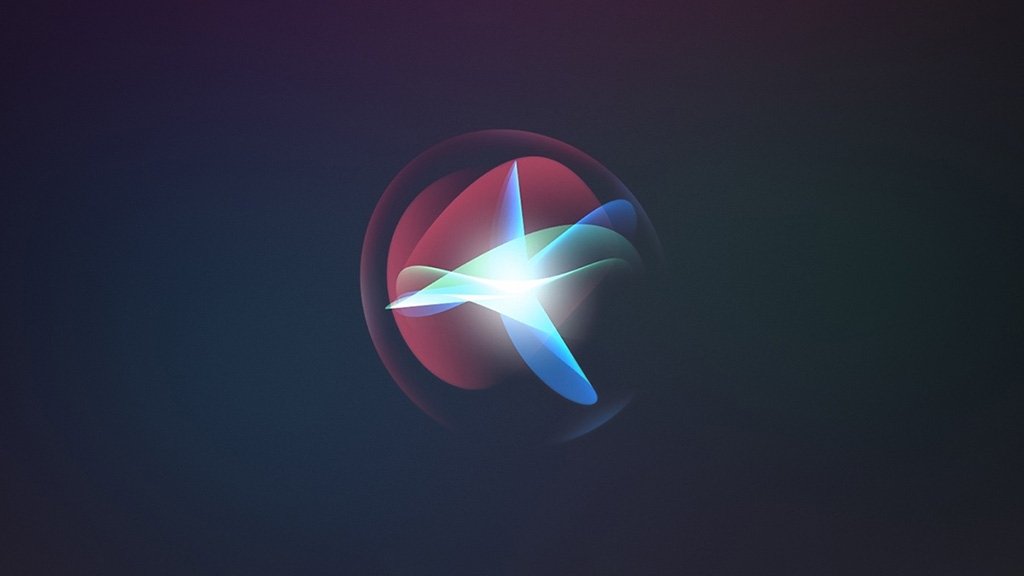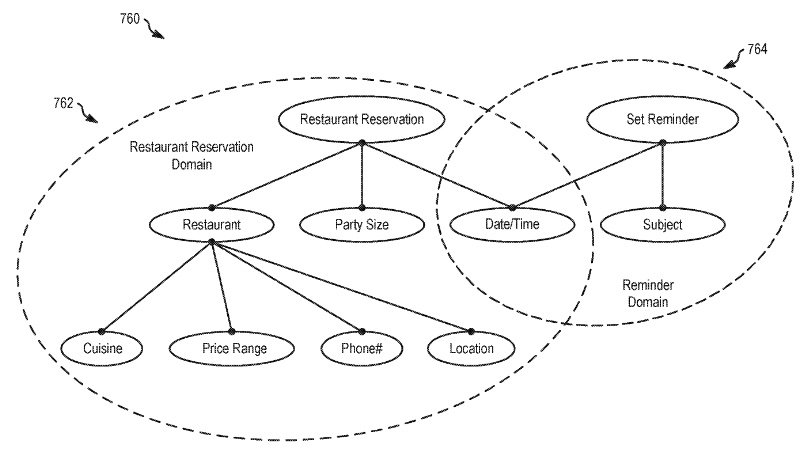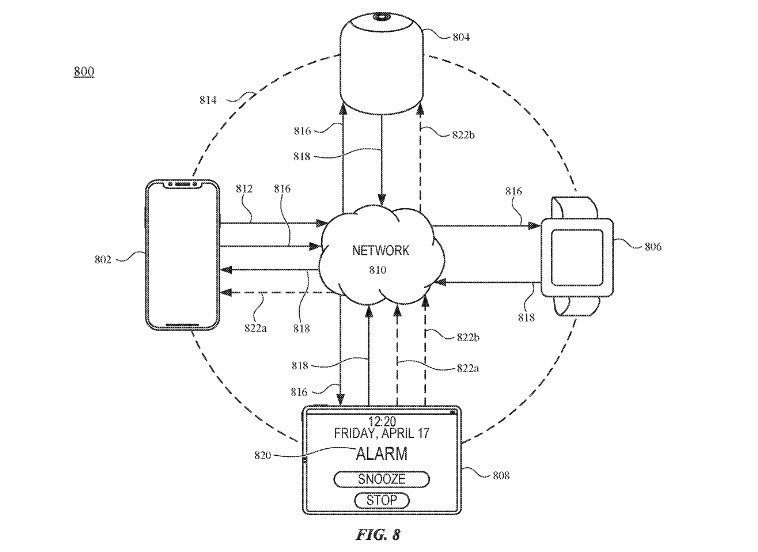Apple researching network broadcast strength to refine Siri location-based responses
Apple is continuing to refine a system for sharing information and context between devices with Siri, allowing for more nuanced and location-aware voice commands.

Credit: Apple
The Cupertino tech giant on Tuesday was granted a patent for "Digital assistant hardware abstraction," which relates to intelligent context sharing and task performance across a group of devices with intelligent assistant capabilities.
"A location, such as a home or an office, may contain multiple devices with digital assistant capabilities. It thus can be desirable for the multiple devices to share context information among one another so that the digital assistants of the multiple devices may intelligently coordinate the performance of tasks in response to user requests based on, for example, events that are occurring (and that have recently occurred) at each device, the location of users with respect to each device, and/or what device capabilities the tasks require," the patent reads.
The goal, as the patent points out, is to create the appearance that a single digital assistant is performing a task, instead of multiple digital assistants on different devices.

Credit: Apple
Apple then defines a few examples in the patent, focusing on commands given to groups of devices. The system relies on aggregate context and data shared between all devices with an intelligent digital assistant, and then parses what to do with the command based on that data.
For example, in one situation, the system could differentiate the same command based on when a specific device is triggered and then comparing that time frame to the same command received by other devices. In these cases, Apple would forego "further processing of the user voice input."
Some of this technology is already used in Apple's HomeKit and Siri systems. For example, if a user gives a "Hey Siri" command in the presence of a HomePod, iPhone, and Apple Watch, only one of those devices will actually receive and carry out the command.
"Accordingly, forgoing further processing of a user voice input if an electronic device determines that another electronic device has already detected a digital assistant trigger (within a predetermined time range) will ensure that multiple devices do not provide a response to the same user voice input at different times, which in turn will improve a user's digital assistant experience," the patent reads.

Credit: Apple
Another example given in the patent relates to alarm events. There's plenty of detail about how turning off an alarm on one device sends a signal to cut the alarm tone on other devices in a user's network. While this capability also exists between an Apple Watch and an iPhone, it could also extend to other devices in a user's home setup.
The patent gives a slew of details on various Apple devices, and explains how the system could determine which device to use in a given situation. For example, a context-collector system could analyze a device score based on the connectivity strength between a device and its network. One portion describes a system to determine the battery life of a device.
The patent lists Bryan Hansen, Nikroux Ghotbi, Yifeng Gui, Xinyuan Huang, Benjamin S. Phipps, Eugene Ray, Mahesh Ramaray Shanbhag, Jaireh Tecarro, and Sumit Wattal as its inventors. Several of them have been named in Apple patents in the past, including ones dedicated to device layout synchronizations and image searching on iOS devices.
Apple is granted numerous patents on a weekly basis, so they're not a good indicator of the company's current plans. However, given that many aspects of this specific patent are already included in Apple devices, it appears that the patent is securing existing technology.
Keep up with everything Apple in the weekly AppleInsider Podcast -- and get a fast news update from AppleInsider Daily. Just say, "Hey, Siri," to your HomePod mini and ask for these podcasts, and our latest HomeKit Insider episode too.If you want an ad-free main AppleInsider Podcast experience, you can support the AppleInsider podcast by subscribing for $5 per month through Apple's Podcasts app, or via Patreon if you prefer any other podcast player.AppleInsider is also bringing you the best Apple-related deals for Amazon Prime Day 2021. There are bargains before, during, and even after Prime Day on June 21 and 22 -- with every deal at your fingertips throughout the event.

Credit: Apple
The Cupertino tech giant on Tuesday was granted a patent for "Digital assistant hardware abstraction," which relates to intelligent context sharing and task performance across a group of devices with intelligent assistant capabilities.
"A location, such as a home or an office, may contain multiple devices with digital assistant capabilities. It thus can be desirable for the multiple devices to share context information among one another so that the digital assistants of the multiple devices may intelligently coordinate the performance of tasks in response to user requests based on, for example, events that are occurring (and that have recently occurred) at each device, the location of users with respect to each device, and/or what device capabilities the tasks require," the patent reads.
The goal, as the patent points out, is to create the appearance that a single digital assistant is performing a task, instead of multiple digital assistants on different devices.

Credit: Apple
Apple then defines a few examples in the patent, focusing on commands given to groups of devices. The system relies on aggregate context and data shared between all devices with an intelligent digital assistant, and then parses what to do with the command based on that data.
For example, in one situation, the system could differentiate the same command based on when a specific device is triggered and then comparing that time frame to the same command received by other devices. In these cases, Apple would forego "further processing of the user voice input."
Some of this technology is already used in Apple's HomeKit and Siri systems. For example, if a user gives a "Hey Siri" command in the presence of a HomePod, iPhone, and Apple Watch, only one of those devices will actually receive and carry out the command.
"Accordingly, forgoing further processing of a user voice input if an electronic device determines that another electronic device has already detected a digital assistant trigger (within a predetermined time range) will ensure that multiple devices do not provide a response to the same user voice input at different times, which in turn will improve a user's digital assistant experience," the patent reads.

Credit: Apple
Another example given in the patent relates to alarm events. There's plenty of detail about how turning off an alarm on one device sends a signal to cut the alarm tone on other devices in a user's network. While this capability also exists between an Apple Watch and an iPhone, it could also extend to other devices in a user's home setup.
The patent gives a slew of details on various Apple devices, and explains how the system could determine which device to use in a given situation. For example, a context-collector system could analyze a device score based on the connectivity strength between a device and its network. One portion describes a system to determine the battery life of a device.
The patent lists Bryan Hansen, Nikroux Ghotbi, Yifeng Gui, Xinyuan Huang, Benjamin S. Phipps, Eugene Ray, Mahesh Ramaray Shanbhag, Jaireh Tecarro, and Sumit Wattal as its inventors. Several of them have been named in Apple patents in the past, including ones dedicated to device layout synchronizations and image searching on iOS devices.
Apple is granted numerous patents on a weekly basis, so they're not a good indicator of the company's current plans. However, given that many aspects of this specific patent are already included in Apple devices, it appears that the patent is securing existing technology.
Keep up with everything Apple in the weekly AppleInsider Podcast -- and get a fast news update from AppleInsider Daily. Just say, "Hey, Siri," to your HomePod mini and ask for these podcasts, and our latest HomeKit Insider episode too.If you want an ad-free main AppleInsider Podcast experience, you can support the AppleInsider podcast by subscribing for $5 per month through Apple's Podcasts app, or via Patreon if you prefer any other podcast player.AppleInsider is also bringing you the best Apple-related deals for Amazon Prime Day 2021. There are bargains before, during, and even after Prime Day on June 21 and 22 -- with every deal at your fingertips throughout the event.

Comments